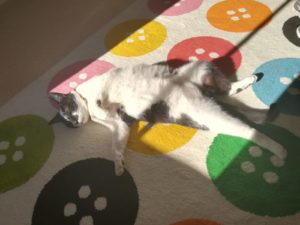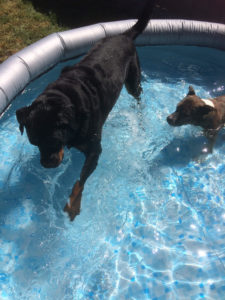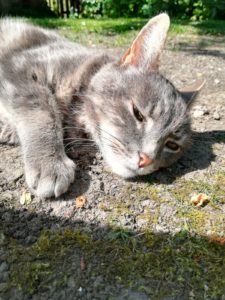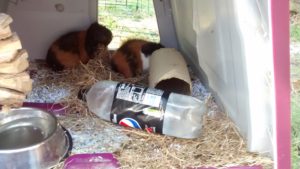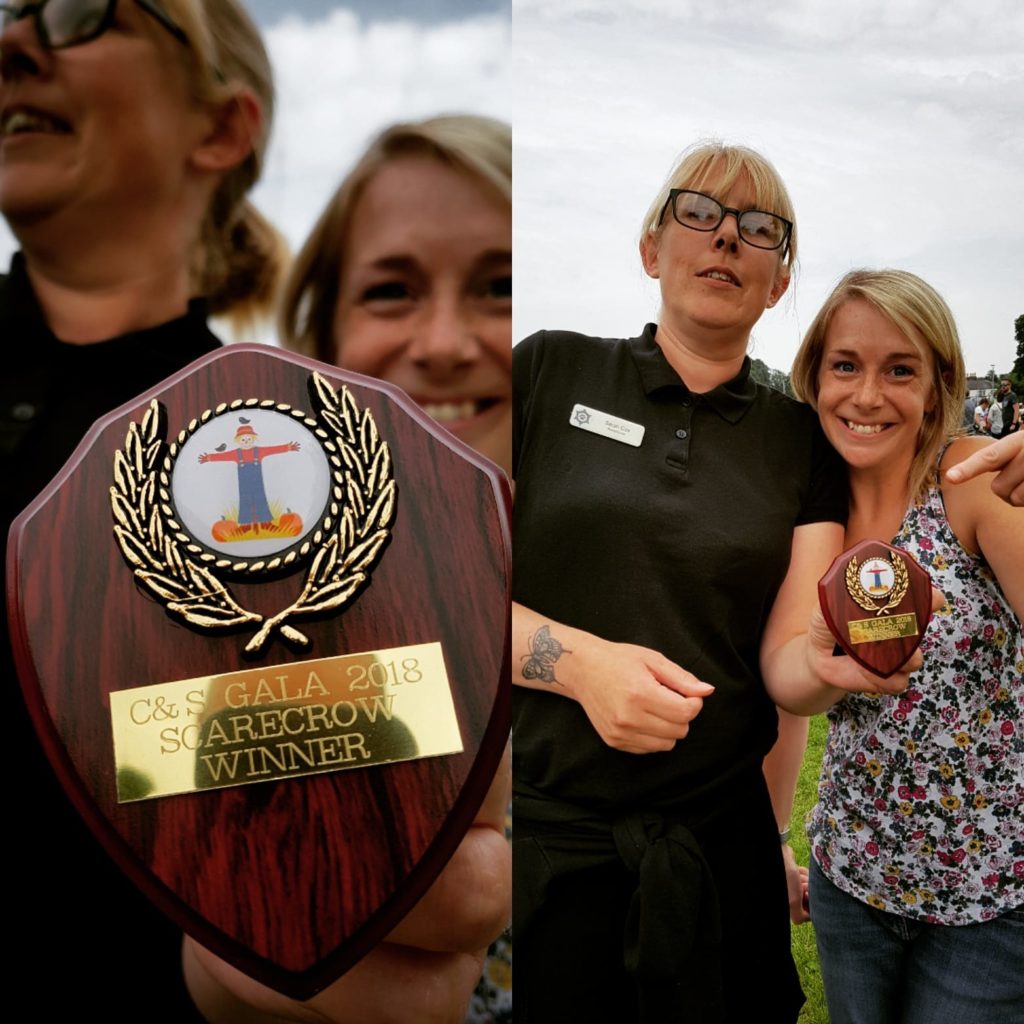 This adorable bunny is Toffee, a much-loved, one year old bunny with a lot of personality! Toffee has become a familiar face at Hollybank because she has faced quite a few health complaints. Luckily, she has a dedicated family and a fighting spirit to see her through.
This adorable bunny is Toffee, a much-loved, one year old bunny with a lot of personality! Toffee has become a familiar face at Hollybank because she has faced quite a few health complaints. Luckily, she has a dedicated family and a fighting spirit to see her through.
Toffee developed a nasty tooth root abscess as a very young rabbit. This required specialist investigation and treatment by an exotics vet at a local referral centre. Little Toffee underwent and CT scan of her head to assess the extent of the infection in her jawbone and the affected tooth had to be surgically removed. Unfortunately, accumulations of pus do not drain from rabbit wounds in the way they would from a dog or a cat. They form hard, lumpy discharge that needs to be surgically removed to ensure resolution of the problem. Rabbits rely on their cheek teeth to feed and grind their fibre properly so it was essential that the area would be infection-free and heal up quickly. Brave Toffee was on antibiotics for a long time after her dental surgery. Even this carried with it some risk- Rabbits sometimes do not tolerate oral antibiotics well as they can disrupt the function of the bacteria in their guts needed to digest the grasses and other plant material in their diet. Toffee needed frequent check ups and weight checks and, to everyone’s delight, made a great recovery. She will need frequent dental checks throughout her life as her teeth do not wear down in the normal way. We keep an eye on them at vaccine times to check her mouth is not getting sore.
Unfortunately for Toffee, the dental abscess was not the end of her story. She developed an abscess some months later in one of her mammary glands. Again, we needed to perform surgery to remove the gland and thereby remove the source of infection. Toffee did ultimately make a good recovery from this surgery but she needed a lot of support from her dedicated mum. It is important that rabbits eat as soon as possible after anaesthesia to keep their guts in working order. Toffee’s appetite returned and we were able to get on with the next step in her long and eventful tale.
 At Hollybank, we recommend spaying rabbits which is a surgical procedure to remove their uterus and ovaries. This is for a number of reasons, not least because they very commonly develop cancer of the uterus in middle to older age. It is a leading cause of death in entire females and is preventable so we are very keen to do so for as many as possible. Rabbits are also a very sociable species, they need company from at least one other rabbit to meet their behavioural needs. Two entire rabbits of the same sex usually fight and there is much more success with mixed sex pairs. Obviously, we need to prevent lots of offspring resulting from these “friendships” and neutering allows us to achieve this. In Toffee’s case, we also advised spaying because hormonal changes had likely predisposed her mammary gland to infection. Toffee underwent anaesthesia again and recovered again with lots of TLC, syringe feeding, pain relief and medications to keep her gut moving.
At Hollybank, we recommend spaying rabbits which is a surgical procedure to remove their uterus and ovaries. This is for a number of reasons, not least because they very commonly develop cancer of the uterus in middle to older age. It is a leading cause of death in entire females and is preventable so we are very keen to do so for as many as possible. Rabbits are also a very sociable species, they need company from at least one other rabbit to meet their behavioural needs. Two entire rabbits of the same sex usually fight and there is much more success with mixed sex pairs. Obviously, we need to prevent lots of offspring resulting from these “friendships” and neutering allows us to achieve this. In Toffee’s case, we also advised spaying because hormonal changes had likely predisposed her mammary gland to infection. Toffee underwent anaesthesia again and recovered again with lots of TLC, syringe feeding, pain relief and medications to keep her gut moving.
Just as this wonderful little girl seemed to have turned a corner, we found a second abscess near the site of her previous mammary gland surgery. This was a real set-back for Toffee and we had to think very carefully about how to proceed. Nobody wanted to go straight back to surgery though we had to accept this might be unavoidable. We sought the advice of a university exotics vet and she kindly advised us of a very useful plan. The medications needed were not without risk. Again Toffee would need a long course of antibiotics with all the risks associated with that. This time, it would involve injecting her every day and we didn’t know for how long. The antibiotic needed is not licensed for use in rabbits and is very uncommonly used as it can cause problems. Despite the risk, we agreed we would try the injectable antibiotic course. We showed Toffee’s mum how to perform the injections so they could be given at home. Meanwhile, Toffee needed to be syringe fed to ensure her diet contained plenty of plant material to help protect her gut from side effects of treatment. She was on daily probiotics and everyone waited anxiously to see what the effect would be.
 Thankfully and to our great relief, the abscess gradually reduced in size and eventually we were able to stop the treatment. Toffee is monitored regularly but has made a full recovery and is back to being her usual, happy and active self. Since she is now spayed and fully vaccinated, this wonderful little bunny has now been introduced to a new friend, Ronnie and the two have bonded beautifully. Ronnie is a lovely, black, lop-eared rescue rabbit and certainly deserves the five-start home he has hopped into.
Thankfully and to our great relief, the abscess gradually reduced in size and eventually we were able to stop the treatment. Toffee is monitored regularly but has made a full recovery and is back to being her usual, happy and active self. Since she is now spayed and fully vaccinated, this wonderful little bunny has now been introduced to a new friend, Ronnie and the two have bonded beautifully. Ronnie is a lovely, black, lop-eared rescue rabbit and certainly deserves the five-start home he has hopped into.
We wish Toffee and her new found friend lots of happiness in their new life together!

